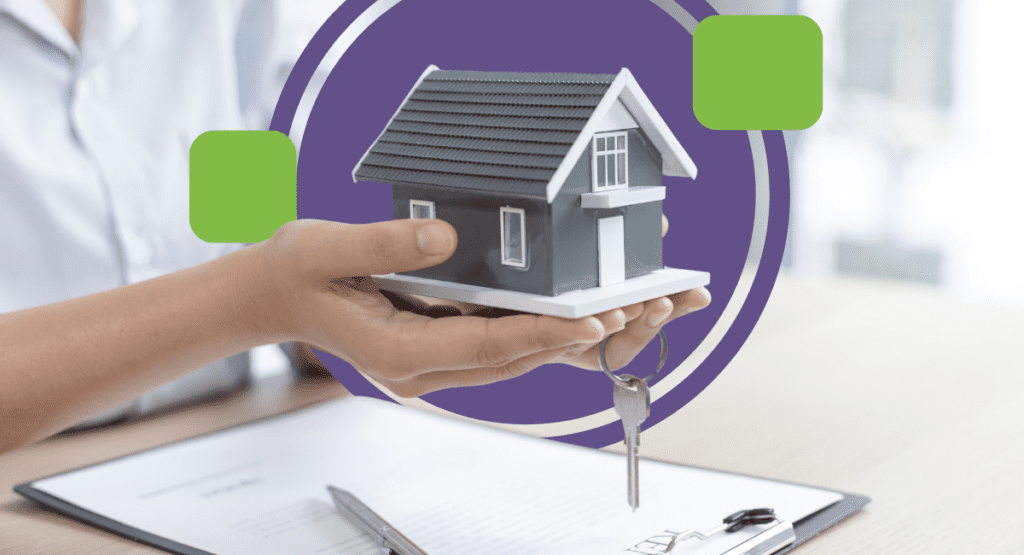
Healthcare professionals work some of the longest, most emotionally and physically draining shifts. At the end of the day, they deserve to escape to the home of their dreams. Yet, many are often boxed out of the traditional American dream of owning a home due to strict conventional underwriting and large down payment requirements.
Fortunately, some mortgage lenders offer medical professionals a special home financing program called a “physician home loan” that’s sometimes extended to healthcare providers outside of the typical doctor title (e.g., MD, DO).
Alternatively, mortgage lenders can guide home buyers through other forms of lending, such as the Federal Housing Administration (FHA) loan and a conventional home loan.
Keep reading to learn about the various options for healthcare worker home loans.
Option #1: Physician mortgage loans aren’t just for doctors
Although the name might suggest exclusivity to doctors only, many physician mortgage programs extend their eligibility to include other high-income professions.
Doctors and dentists typically qualify for this type of loan program. But other common healthcare professions, such as physician assistants, nurse anesthetists and nurse practitioners, might qualify for a physician mortgage depending on the lender.
This low down payment solution can be beneficial to young healthcare workers who haven’t had time to save up for a large down payment or simply prefer to use their savings for other financial priorities.
However, you’ll generally need a good credit score to be eligible as most physician mortgage programs require a 700 or higher to access the best down payment options. Additionally, some programs are strictly for MD, DO, DDS and DMD qualifying degrees.
Pros of physician mortgage loan
- Down payment options as low as 0%.
- No private mortgage insurance (PMI) requirement.
- Higher loan limits ranging from $750,000 to $2 million or more.
- Relaxed income requirements, including the ability to close on a home up to 90 days before starting a new position.
- Student loan debt might be excluded from debt-to-income ratio (DTI), depending on the lender.
Cons of physician mortgages
- Higher monthly mortgage payments when using a $0 or low down payment solution.
- Qualifying for a higher loan amount might put you in a worse financial situation if you can’t afford your monthly payments.
- Programs might be limited by state or region, as well as qualifying property type.
What mortgage product do you need?
Your Occupation
Home Price Range
Preferred Down Payment
Stage You're At in the Home Buying Process
When Do You Want a Mortgage Approval?
How Many Banks Would You Like Quotes From?
Any Bankruptcies or Short Sales?
Full Name
Phone Number
State Where You Plan to Purchase
Metro Area Where You Plan to Purchase
Citizenship Status
Communication Preference
Would You Like to Add Any Additional Details?
Option #2: Professional home loans for healthcare workers
If you don’t qualify for a physician mortgage program, you might be eligible for a professional home loan program. These programs aren’t typically as generous as a physician loan, but they can still benefit healthcare workers looking for a low down payment solution with flexible underwriting.
For example, registered nurses and EMS personnel don’t usually qualify for physician loans. But a professional home loan can give them the option to provide a much lower down payment than a conventional loan, while dodging PMI costs.
Pros of a professional mortgage loan
- Low down payment options (e.g., 3% to 10% down).
- No PMI requirement.
- Broad range of qualifying degrees and professional licenses are eligible.
Cons of professional mortgage programs
- Depending on the lender, loan amounts might be capped (e.g., $350,000).
- Can be challenging to find a lender that serves both your profession and location.
Option #3: Healthcare workers can use an FHA home loan
The Federal Housing Administration, which is part of the U.S. Department of Housing and Urban Development (HUD), provides mortgage insurance on certain loans made by an FHA-approved lender.
These government-backed loans are intended for low- to moderate-income households who also have lower credit scores and need a smaller down payment as first-time home buyers.
To qualify for the lowest down payment option of 3.5%, potential homeowners must have a verifiable income for the last two years (e.g., tax returns, pay stubs, etc.) and a credit score of at least 580. However, borrowers with a credit score as low as 500 might be eligible for a 10% down payment.
Pros of an FHA loan
- Down payment options as low as 3.5%.
- Credit score requirements in the 500s or higher (varies by down payment).
- Borrowers with a history of bankruptcy or foreclosure in recent years might still qualify.
Cons of an FHA loan
- Upfront mortgage insurance premium funding fees (e.g., 2.25% of the total loan amount), which can be paid at closing or rolled into your mortgage.
- Mortgage insurance premiums are required for the life of the loan and are typically rolled into your monthly mortgage payment.
- Loan limits vary by location, therefore, you might have lower loan limits in a low-cost area.
Related: FHA Student Loan Guidelines: What You Need to Know
Option #4: Conventional mortgages might be a good fit for some
Conventional loans are traditional home loans that isn’t backed by the government. Therefore, mortgage lenders impose strict underwriting guidelines because they’re assuming the risk. This typically includes requiring a down payment equivalent to 20% of the home’s purchase price. Otherwise, the borrower is required to carry PMI until enough equity has been built up.
Qualifying for conventional loans can be more difficult for healthcare workers than a physician or professional home loan. Many healthcare professionals find it challenging to qualify for a conventional loan early in their career due to the student debt that is often needed for medical school or training, along with the lower income that is associated with residency or the first several years of working.
Pros of a conventional loan
- Variety of fixed-rate mortgages (e.g., 10-, 15-, 20- and 30-year) and adjustable rates.
- No additional upfront funding fees.
- Loan amounts are determined by your income and credit rather than a predetermined loan limit with a government-backed loan.
- Might result in a more affordable mortgage payment since you’ll have to meet conventional standards.
Cons of a conventional mortgage loan
- Requires a large down payment.
- PMI will be required if your down payment is less than 20% of the home purchase.
- Each lender sets its own underwriting guidelines, including debt-to-income ratios (DTI), minimum credit scores and income requirements.
Bottom line: There are many options for healthcare worker home loans
If you’re a doctor or dentist — or married to one — then your family has access to the most flexible mortgage options within the healthcare field. In most cases, a physician mortgage can offer the most benefits while maintaining competitive interest rates.
But other medical professionals still have mortgage options that aren’t necessarily available to the general public. If you don’t have an MD, DO, DDS or DMD, carefully evaluate which programs are available to your household based on profession, location and other factors.
For example, a registered nurse might be limited to a single bank in their state that offers professional home loans with an adjustable rate that’s locked in for a period (e.g., 10 years). Whereas a physician assistant or nurse practitioner might qualify for a greater variety of mortgage options.
Keep in mind that healthcare worker home loan programs aren’t always advertised. If you speak with your real estate agent about mortgage broker recommendations, there’s a good chance that physician mortgage programs and other professional loan programs won’t be mentioned since a commission isn’t typically involved.
Do your own research and reach out to multiple lenders to find the most beneficial mortgage option for your situation. Fill out the form below to receive free quotes related to your healthcare profession.


